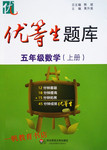题目内容
第一节完形填空
Japanese high school students do not drive cars. Many either walk or ride bicycles if distance is not too great. In other cases, a lot of students must 1 public buses and trains, often changing lines several times in order to reach their 2 . it is common for students to 3 two or more hours each day on public transportation. After junior high school, students attend schools based on standardized high school entrance examination scores. As a result some students travel a great distance to 4 the school. The school day begins at 8:30, so students may leave home as early as 6:30. While some students sleep or study during their long travel, public transportation also 5 a chance for socializing with peers. Students 6 to school is regulated by school policies. There policies may prohibit 7 activities in public-chewing gum, consuming snacks, 8 books while walking-anything that might reflect 9 on the reputation of the school. Each school has a unique uniform that makes its students easily identifiable to the public. School policies often require students to 10 on buses and trains, leaving seats open for other passengers in order to show his thoughtfulness(关怀;体贴) towards others.
( ) 1. A. go B .have C. take D. get
( ) 2. A. homes B. destinations C. schools D. classrooms
( ) 3. A. take B. cost C. spend D .have
( ) 4. A. go B. leave C. attend D .pass
( ) 5. A. gives B. offers C. sends D .takes
( ) 6. A. on the way B. in the way C .by the way D. at the way
( ) 7. A. sure B. certain C. special D. probable
( ) 8. A. carrying B. taking C. holding D .reading
( ) 9. A. worse B. well C. badly D. truly
( ) 10. A. silence B. sit C. seat D. stand
1--5 CBCC 6--10 BABDCD
解析

 优等生题库系列答案
优等生题库系列答案